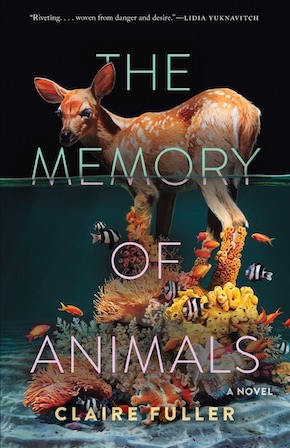Claire Fuller: Polpo fiction
by Mark Reynolds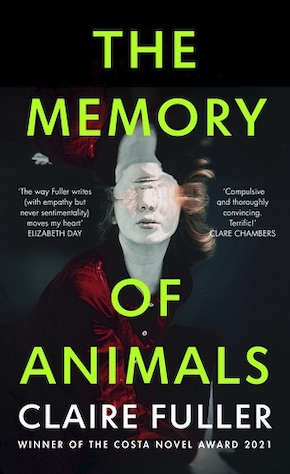
Claire Fuller’s latest novel The Memory of Animals imagines a near-future London paralysed by a devastating pandemic that has wiped out much of the world’s population. The narrator Neffy, a marine biologist with an obsessive interest in cephalopods, is among a band of young, healthy volunteers in a vaccine trial. At the beginning of the novel, Neffy is infected with the virus and close to death as she drifts in and out of consciousness. When she recovers, she is one of only five surviving volunteers, and perhaps the only one who is immune. The staff at the vaccine centre have vanished without trace, food stocks are low, and the streets outside are empty but for dead bodies and abandoned vehicles. Neffy’s diary entries slowly reveal her troubled work with octopuses at an aquarium, while family heartbreak is laid bare as she begins to retreat into old memories via a vivid device called a Revisitor, which fellow volunteer Leon is developing – with patchy success. With a gnawing sense that the other volunteers are keeping something from her, and little left to hope for in the future, Neffy becomes addicted to grasping at her past, and the chance to reunite with those she has loved. It’s an endlessly fascinating study of isolation and captivity, survival and sacrifice, delirium and imagination.
Mark: The novel opens like a kind of lockdown fever dream. When and where did you conceive it, and what were the first lines you wrote?
Claire: I started it in September 2019 as a few pieces of flash fiction about a pandemic, so four months before I heard any mention of an actual pandemic and six months before the UK’s first lockdown. I’ve always loved reading post-apocalyptic novels and so I thought I’d write one. Plus one of my son’s friends told me about Flu Camp, where he’d been part of a flu vaccine trial, which involved being isolated in a room in a unit for two weeks.
I do still have the first lines:
In the treatment room I lift up a chair and shove its legs against one of the locked glass cabinets. I expect it to be made of some kind of hard plastic, but it’s glass and it shatters. I wait to see who will come, Kit or Alice, or Marjorie. James is too ill to get out of bed. I should go and check on him, but I don’t. We hadn’t broken into this one because we can see what it contains: bandages, eye-patches, treatment for stubborn earwax and verrucas.
The idea of this was used in a scene in the final book but it was substantially changed, as were Kit, Alice, Marjorie and James!
How would you sum up the book in around 25 words?
Neffy, a 27-year-old marine biologist, volunteers for a vaccine trial. Following a bad reaction, she finds herself alone with four strangers in the midst of a pandemic. Plus, octopuses!
This novel was first announced as Body of Water. What brought about the title change?
I liked that title on many different levels as did Penguin, my UK publisher. But then my US publisher, Tin House, bought the novel and they’d recently published a book called A Girl Is a Body of Water, so my title didn’t work for them. I could have come up with a different title for the US but I think it’s important to have the same across all English-speaking countries. So we had to come up with an alternative in double quick time.
So many amazing facts! Perhaps I should pick the one about the South Korean dish where octopus arms are eaten alive and still moving. Or any fact that might stop people from eating octopuses.”
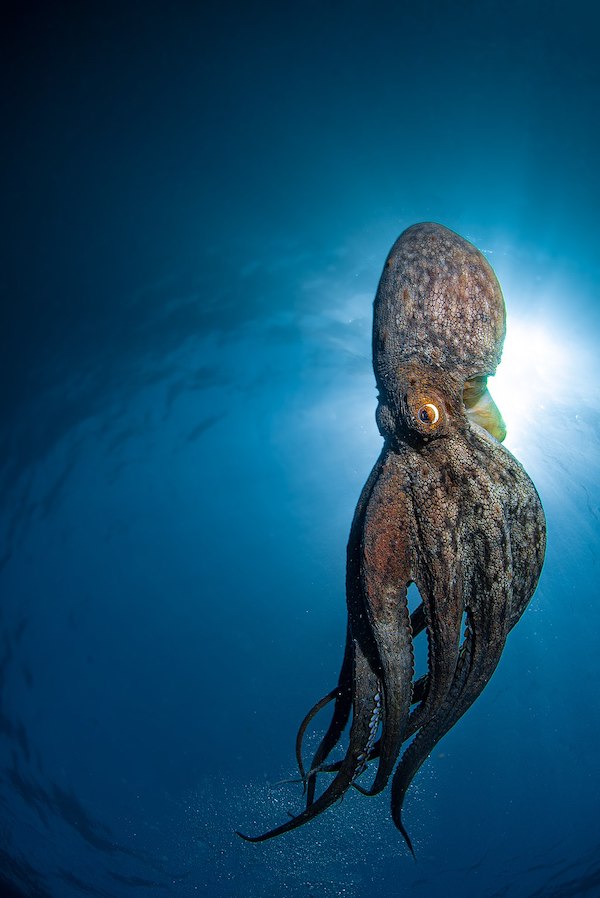
Can you pinpoint when you first became fascinated by the physiology of the octopus? And what do you consider some of the most amazing facts that Neffy shares?
I’ve always been fascinated by cephalopods mostly for the shapes of their arms and tentacles, and in the case of ammonites for their shells. When I was sculptor and later when I made work in glass I used the shapes of cephalopods in a lot of my art. It wasn’t until I started researching octopuses for The Memory of Animals that I learnt more about their physiology.
So many amazing facts! Perhaps I should pick the one about the South Korean dish where octopus arms are eaten alive and still moving, and diners have been known to choke when the suckers stick to the inside of their throats. Or any fact that might stop people from eating octopuses.
Why do you think we were all so enthralled by My Octopus Teacher?
Isn’t it an amazing programme? I think we were all so enthralled by it because it showed us that we – humans – can make a connection with these creatures, an individual connection. We come to understand that these animals have a self-awareness and character which makes them more like us, and aren’t we’re always looking for creatures that are more like us?
How would you summarise your lockdown experience?
Physically my life didn’t change too much: I was at home writing as I was before. But now my husband was at home all day, and I wasn’t allowed to hug my children (who have left home). But I did question what I was doing, writing a story with a pandemic in it. Should I carry on? What was the point? But what could I do instead? And then extreme sadness at everything that was happening, and at having to leave my son in an empty shared house at Christmas. And then anger when I heard that those in charge of the country at the time felt they could still go to parties.
What other novels or other artistic endeavours are you aware of having responded to the pandemic in interesting ways?
Even having lived through Covid I’m still not put off from reading pandemic novels. The Fell by Sarah Moss, for example, was a brilliant response to the isolation and social distancing we went through. And Burntcoat by Sarah Hall was one of my favourite novels I read last year. It’s about a different pandemic from ours, but absolutely brilliant in the way that it deals with love and loss.
Your character Piper observes that: “Humans are useless at learning from their mistakes. We just have to keep making new plans.” Are there mistakes you have personally managed to learn from, or do you tend to agree with her?
Well, I think the reality is somewhere in the middle. We can be aware of our mistakes but it’s still often difficult to learn from them. I do agree with her that it’s always good to keep making new plans.
If we’re talking about writing, I know I made some mistakes with previous novels: the beginnings might be too slow for example. And in the next book I try to consider this – the pacing of the beginning. And then I find when that book is published that the pacing of the beginning is great but something else isn’t right: secondary characters or a piece of dialogue – there’s always something. So, I make a plan for another book.
Leon’s Revisitor app is addictive and unreliable – Neffy is desperate to return to happy memories, but it doesn’t always work out. It was interesting to read those passages at a time when prominent industry experts published an open letter calling for a six-month pause in developing advanced AI systems, citing “profound risks to society and humanity”. What do you understand those risks to be?
I find the idea of super powerful AI systems with human-competitive intelligence extremely worrying, and I certainly support a pause while safeguards are considered or put in place. But I’m not an expert, I’m only someone who is interested in the subject, and particularly in reading or writing about elements of science-fiction in novels. But from what I’ve read, the risks are extreme; you just have to consider the French man who took his own life following a conversation with a Chatbot ‘therapist’. On a less extreme level we could also talk about creativity, and writing novels. Will human authors be replaced at some point in the future? Can every human activity be replaced? What then? The questions are endless.
Memories are an illusion. They become more fixed the more you think of them, and each time you remember, you are recalling remembering the memory rather than the memory itself.”
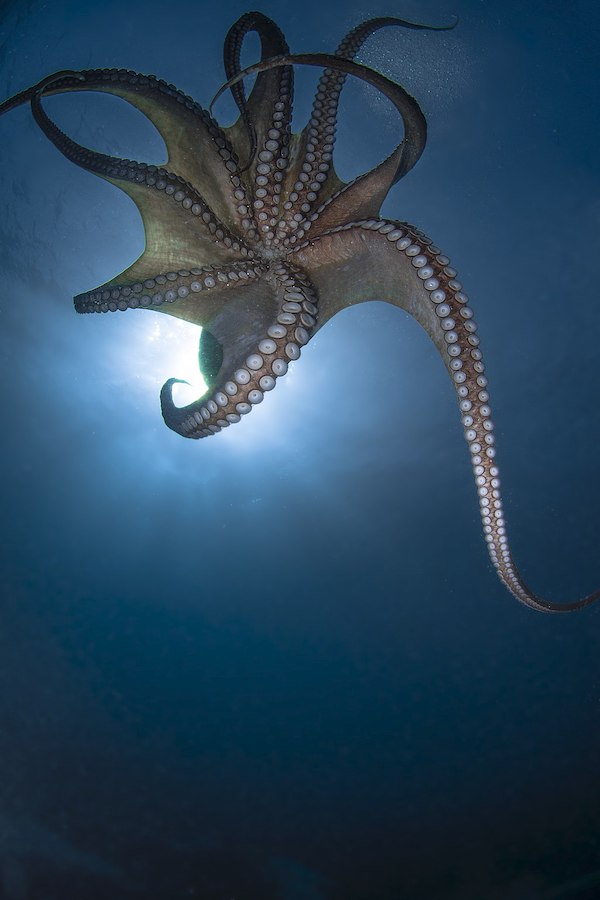
At one point, after musing on a captive tiger that refused to leave the perimeters of its cage after being released into a nature reserve, Neffy watches a piece of litter blowing in the wind “having no choice but to go forward because the invisible wind says to go back is only an illusion.” Are we as a species too locked into memories, or are they a vital part of our make-up?
They are absolutely vital! Just look at what happens with those suffering from dementia. Lose your memory and you lose a fundamental part of who you are. But memories are an illusion. They become more fixed the more you think of them, and each time you remember, you are recalling remembering the memory rather than the memory itself. This is why Revisiting is so addictive for Neffy. She’s gets to see everything, not just her circumscribed memory.
Captivity and institutionalisation are a recurring theme. Is this another lockdown thing, or a further expression of your interest in isolation and individuals at the margins of society?
I never mean to write about isolation and individuals at the margins of society, but I do keep coming back to these themes in every book. I don’t think The Memory of Animals is a response to lockdown, but more a response to those interests. Once I’ve written a certain amount of a novel, two thirds or so, then the themes start to appear and when I’ve decided what they will be I go back over the text and make them more pronounced, or at least available to see, if you look for them. So, captivity and freedom especially can be found at every level in The Memory of Animals.
I laughed out loud at this exchange between Justin and Neffy:
‘What’s a lady orgasm actually like?’
‘Like starting a fire that spreads outwards until it gets to my hands and the soles of my feet and sets them alight.’
‘Nice.’
‘What’s yours like?’
‘Like really needing to go to the loo and then suddenly being able to. But a bit more magical.’
Would you say that women are generally better at expressing feelings and emotions than men? And do you have any tips for writers thinking about writing sex scenes for the first time?
Hmm, in all the relationships I’ve had with women and men, I think I’d have to agree and say that women are generally better at expressing their emotions. Doesn’t mean that men don’t feel them of course.
Advice for writing sex scenes? Firstly I’d say, unless you’re writing in a particular genre which doesn’t call for it, try and write sex with all its funny and awkward messiness. Make it real. Make the characters behave in character. And use the same kind of language that you’ve used in the rest of the novel, don’t start using fancy metaphors about fountains and volcanoes unless the rest of the novel is written like that. And thirdly, consider whether you’re writing the scene with too much of a male gaze. This is not so much to do with point of view, but what happens during the sex scene and what you allow the reader to see.
Neffy is prepared to take part in an organogenesis trial in order to grow a kidney that could save her father’s life. What is the basis, and the current status of that medical science?
As I understand it, what’s happening in real labs is nothing like what I suggest in The Memory of Animals – growing human organs inside other humans for transplantation purposes. The idea came out of a conversation I had with a retired surgeon when I was trying to think of a procedure that would be controversial and even unlikely. In the real world there is an acute shortage of organs for transplant and scientists are looking for ways around this, but these involve growing human organs in animals – either primates or pigs – or in the lab, and then transplanting them into humans. And already with some success.
Which of your books are under option and/or in development for film or TV, and which would it thrill you most to see on the screen?
My first, Our Endless Numbered Days has been optioned for film. Unsettled Ground and Bitter Orange are in negotiation but the whole process is incredibly slow. Honestly, I’d love to see any of them made into a film or for TV as long as they turned out really well. Not much to ask, surely?
What books have you read recently that you would strongly recommend?
I read a lot of fiction and post mini reviews on my Instagram account (@writerclairefuller), so if you want the full list of recommendations you can take a look. There are lots!
Some books I’ve read recently and loved: I Have Some Questions for You by Rebecca Makkai, The Dry Heart by Natalia Ginzburg, Lessons by Ian McEwan, and My Name is Why by Lemn Sissay.
What are you writing next?
I’m supposed to writing some short stories, but I got pulled away by the idea for another novel. It’s set in 1987 and is about a teenager who works in the post room of an art school and kills someone. I’m about thirty thousand words in and have no idea what’s going to happen next.
Borrowing from a comment by Leon, have you decided what shoes you’re going to wear to the end of the world?
I’d like to say some suede thigh-high kick-ass boots, but it’s more likely to be a pair of slippers.
—
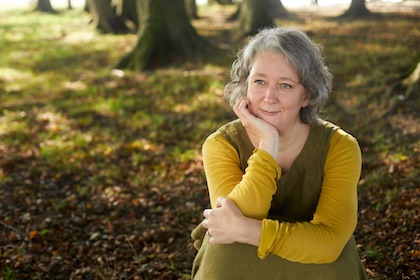
Claire Fuller was born in Oxfordshire in 1967. She gained a degree in sculpture from Winchester School of Art, but went on to have a long career in marketing and didn’t start writing until she was forty. She has written four previous novels: Unsettled Ground, which in 2021 won the Costa Novel Award and was shortlisted for the Women’s Prize for Fiction, Our Endless Numbered Days, which won the Desmond Elliott Prize, Swimming Lessons, which was shortlisted for the RSL Encore Award, and Bitter Orange. She has an MA in Creative and Critical Writing from the University of Winchester and lives in Hampshire with her husband. The Memory of Animals is published by Fig Tree and Penguin in hardback, eBook and audio download.
Read more
clairefuller.co.uk
Instagram: writerclairefuller
Twitter: @ClaireFuller2
@FigTreePenguin
Author photo by Adrian Harvey
Mark Reynolds is a freelance editor and writer, and a founding editor of Bookanista.
@bookanista
wearebookanista
bookanista.com/author/mark

